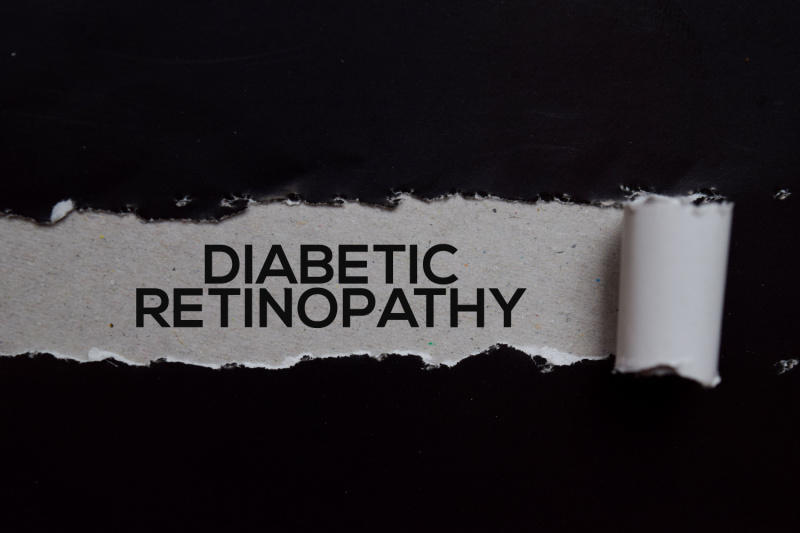While diabetic retinopathy may sound like a scary health condition, it’s really about protecting your eye health when you have diabetes. It occurs when the blood vessels in your eyes get affected by too much sugar in your blood. That’s what we are dealing with, and we’re here to help you understand “what is diabetic retinopathy?” Let’s dive in!
What you need to know:
- What is diabetic retinopathy?
- Symptoms of diabetic retinopathy
- Types of diabetic retinopathy
- Causes of diabetic retinopathy
What is diabetic retinopathy?

Diabetic retinopathy is a health condition where unchecked diabetes affects your eyes. It occurs when the blood vessels of the light-sensitive tissues near your retina, at the back of your eyes, are damaged.
How does diabetic retinopathy develop?
You are more likely to develop diabetic retinopathy when you have health conditions like type-1 and type-2 diabetes. The longer you have diabetes and it goes unchecked, the more the chances of you developing this eye condition.
Symptoms of diabetic retinopathy

As your eye complication progresses, you might experience certain symptoms, including,
- Dark or empty spots in your eye vision
- Blurry vision
- Partial loss of vision
- Poor night vision
- Floating spots or dark strings in your vision
Types of diabetic retinopathy
Here are the two main stages and types of diabetic retinopathy
Non-proliferative diabetic retinopathy (NPDR)
Non-proliferative diabetic retinopathy (NPDR) is the early-stage diabetic eye disease that many people with diabetes develop. When you have NPDR, the tiny blood vessels in your eyes leak, causing your retina and macular to swell. Once these parts start to swell, you will experience loss of vision. This is also known as macular edema.
You can also experience macular ischemia, a condition where the blood vessels in your retinas can completely close off due to excessive swelling. This results in blood not reaching your macula, resulting in a negative effect on your vision, making it blurry.
Proliferative diabetic retinopathy (PDR)
Proliferative diabetic retinopathy (PDR) is a severe form of this eye condition that occurs when your retina starts growing new blood vessels abnormally, also known as neovascularization. If these new blood vessels bleed only slightly, you might notice floating spots in your vision. A lot of bleeding can block your entire vision, resulting in scar tissue leading to a detached retina. PDR is a severe form of diabetes retinopathy that can cause permanent loss of central and side vision.
Causes of diabetic retinopathy
Here are the main causes of diabetic retinopathy:
- High blood sugar levels: Uncontrolled high glucose levels in your bloodstream can damage the delicate blood vessels in the retina.
- Blood Pressure and Cholesterol Levels: Increased blood and cholesterol levels can damage the blood vessels in your retina, which increases the severity of diabetic retinopathy.
While diabetic retinopathy cannot always be prevented, regular eye checkups and good control over blood sugar and blood pressure levels can help prevent permanent or severe vision loss.
Stay tuned to the Activ Living Community. Keep up to date with the latest health tips and trends through expert videos, podcasts, articles, and much more in nutrition, fitness, mindfulness, and lifestyle conditions like Asthma, Blood Pressure, Cholesterol, and Diabetes.
You may also be interested in the following blogs:
- How Does Insulin Therapy Make Life Easier For People With Diabetes?
- Sedentary Lifestyle And Diabetes: Transform Passive Life To Active Life
Popular Searches
How to lower blood pressure | Fruits good for liver | Unhealthy foods | Ragi Benefits | Basal Metabolic Rate | Acupressure points for High Blood Pressure | Ayurvedic medicine for blood pressure | How to control cholesterol at home | Homeopathy for Asthma | Biological Age | Home remedies for TB | Natural beta blockers | Negative effects of internet | Types of walking | Blood pressure calculator | Blood sugar calculator | BMI Calculator





 1800-270-7000
1800-270-7000






